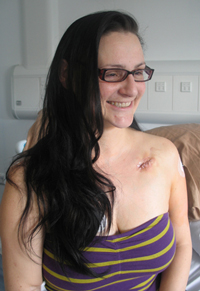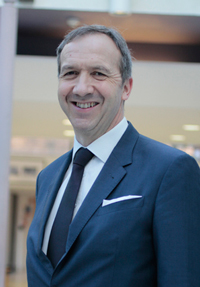by Penelope Wybrow
Heart rhythm patients at Harefield Hospital were among the first in the UK to benefit from a new implantable device which was designed to allow them to undergo vital MRI health checks.
People with traditional pacemakers and ICDs, which send electrical pulses to the heart to change a dangerous rhythm into a normal one, are unable to benefit from MRI technology because of a risk that the scans could make their heart devices malfunction.

The imaging technique uses a powerful magnetic field which can stop the metal leads in the devices working properly, so patients cannot have this type of scan.
MRIs allow doctors to view detailed images of internal organs and blood vessels and are a crucial tool when it comes to diagnosing many conditions, including heart problems and cancer. Patients with conventional pacemakers and ICDs have traditionally undergone alternative forms of screening instead, such as X-rays and ultrasounds, which could lead to a delayed diagnosis. Harefield was one of the first hospitals in the UK to offer a new life-saving device.
The battery-operated ICD, called the Evera MRI SureScan, has special software to protect it from the scan’s magnetic field and safeguards it against any interference. Patients fitted with one can have MRI scans on any part of their body, including the heart.
Doctors can reprogram the ICD wirelessly on a laptop before an MRI scan, so that the device is shielded from detecting abnormal heart rhythms during the time it is carried out. The matchbox-sized device costs £20,000, twice as much as traditional implants.
One of Harefield’s first patients to have the new ICD fitted was Penelope Wybrow, 42, from Pinner in north-west London.
Penelope has cardiomyopathy, an inherited disease that causes the heart muscle to thicken and weaken over time, making it less able to maintain a normal rhythm and putting it at risk of stopping suddenly.

Dr Mark Mason
Dr Mark Mason, consultant cardiologist, implanted her device in April 2014 during a 45-minute procedure that was carried out under local anaesthetic.
Dr Mason said: “This device means patients can undergo MRI scans, which are the now the gold standard for diagnosing life-threatening or disabling conditions such as spinal problems.
“Thousands were denied these scans before, which led to delays in diagnosis and treatment.”
Penelope said: “I feel I could live forever now! My new pacemaker has given me complete peace of mind. Before, I was scared of taking any exercise or even picking something up – I couldn’t live my life to the full.
“But this is like having my own personal paramedic, which will respond faster than an ambulance and restart my heart.”
